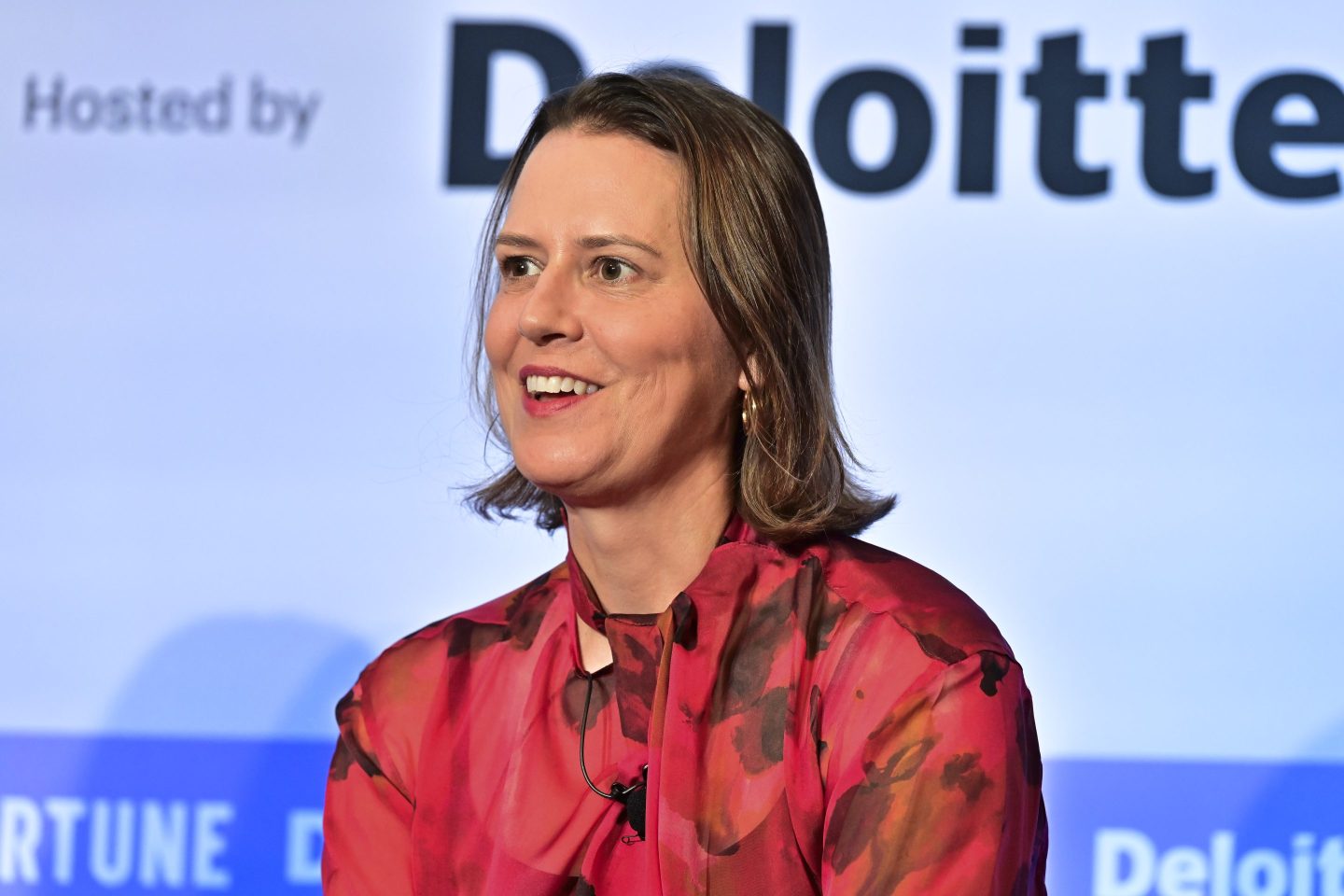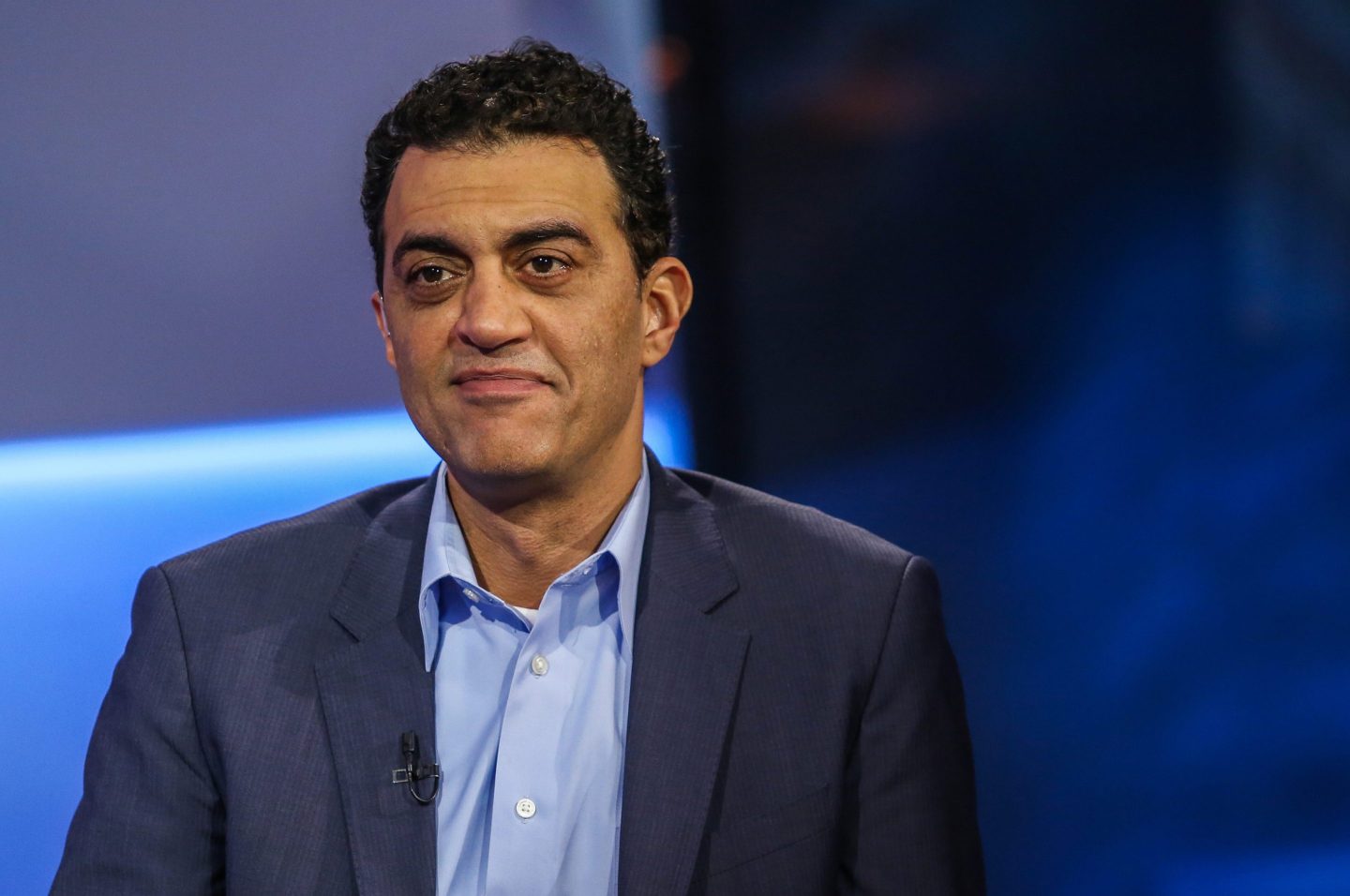As artificial intelligence reshapes industries at a breakneck pace, many leaders agree the digital transformation underway is not just about technology—it’s about people.
In fact, Anna Marrs, group president of global merchant and network services at American Express, said empathy is the most under-hyped factor in the AI transformation era and that preserving human connection is key to capitalizing on radical technological changes. At the Fortune Most Powerful Women conference in Washington, D.C., on Wednesday, she said she finds Anthropic’s Claude to be one of the most empathetic AI tools she uses: “He’s really nice to me.”
“You don’t want to code for too much empathy, but we need to program some empathy into AI,” she added.
Recent studies show that while AI has at least some capacity to display empathy, people still prefer consoling messages from other humans. But as AI continues to develop, it could become more empathetic, other studies show.
Paula Kerger, CEO of PBS, said that empathy among leaders is critical in the AI era, especially since “a lot of people are terrified” of the technology and are paying close attention to it. To her, being empathetic looks like continuing to build trust with consumers in the AI era by disclosing how content is created and how organizations talk about the transformation, she said.
“Some of us get so excited about the possibilities of what [AI] can do, but you don’t think about how the public will think about that and the impact that it could have on trusted advice,” she said. Kerger previously discussed tech and AI transformation with Fortune in 2023 and said people who aren’t riding the AI wave aren’t “living in the right decade.”
Iris Yen, chief strategy and transformation officer at hair care and cosmetics company Wella, says she is mindful of workers’ fear of AI; she makes only necessary personnel changes at her company to avoid too much disruption.
“You don’t have to change out everybody” to succeed in the AI era, she said. “You just place those few people in the right spot, and as a leader, empower them, clear the obstacles, open the communication between functions. Those few people can really carry quite a lot and create quite a lot of momentum.
The ‘three Ps’ of AI transformation
Aside from empathy, Amy Feirn, managing principal for transformation at Deloitte U.S., outlined three more factors that are critical in the AI era.
She called them the “three Ps:” purpose, preparation, and positioning. Outlining purpose could be an objective or goal, like improving operational effectiveness or efficiency or increasing the power of an existing customer base, she said.

Secondly, it’s important for an organization to be prepared to introduce AI to the workplace and to its products and services. This could mean ensuring the company has the proper cloud infrastructure, computing power, and data security in place, she said.
Lastly, the CEO and the rest of the C-suite have to understand how the company will position the transformation so it can actually define and then track the return-on-investment it’s making from AI—but ROI can look different at every company, she said.
“It’s hard to just say what is the exact ROI or metric on this particular piece of agent technology,” Feirn said. That’s why breaking down AI transformation planning into the three Ps can be helpful, she said.













